When it comes to choosing the right quail species for your patio, there are a few factors to consider. First, you’ll want to think about the size of your patio and how much space you have available for your quail. Some quail species, like the Japanese quail, are smaller and more suitable for smaller patio spaces, while others, like the Coturnix quail, are larger and may require more room to roam.
Another important consideration is the climate in your area. Different quail species have different temperature and humidity requirements, so it’s important to choose a species that is well-suited to the climate in your region. For example, if you live in a hot and dry climate, you may want to consider a species that is more heat-tolerant, like the Gambel’s quail. On the other hand, if you live in a cooler and more humid climate, you may want to choose a species that is better adapted to those conditions, such as the Bobwhite quail.
Finally, you’ll want to think about your own preferences and goals for keeping quail on your patio. Some quail species are known for their egg-laying abilities, while others are prized for their meat. If you’re interested in raising quail for eggs, you may want to choose a species that is known for its high egg production, like the Coturnix quail. On the other hand, if you’re more interested in raising quail for meat, you may want to consider a species that is larger and has a higher meat yield, such as the Bobwhite quail.
In conclusion, when choosing the right quail species for your patio, it’s important to consider factors such as the size of your patio, the climate in your area, and your own goals and preferences for keeping quail. By taking these factors into account, you can ensure that you choose a quail species that is well-suited to your patio space and will thrive in your local environment.
Key Takeaways
- Consider the space and climate of your patio when choosing the right quail species
- Provide a secure and predator-proof habitat for your quail with proper bedding and shelter
- Offer a balanced diet and clean water to your quail, and monitor their consumption
- Provide enrichment such as dust baths and perches to keep your quail entertained
- Regularly clean and maintain the quail habitat to prevent disease and ensure hygiene
- Monitor the health of your quail and seek veterinary care when necessary
- Integrate your quail into your patio lifestyle by observing and interacting with them regularly
Creating a Safe and Comfortable Habitat for Your Quail
Creating a safe and comfortable habitat for your quail on your patio is essential for their health and well-being. One of the first things to consider is the type of enclosure you will use for your quail. A secure and predator-proof enclosure is crucial to protect your quail from potential threats such as cats, dogs, and other wildlife. You’ll also want to ensure that the enclosure provides adequate ventilation and protection from the elements, such as sun and rain.
In addition to the enclosure, it’s important to provide your quail with plenty of space to move around and exercise. Quail are active birds that enjoy scratching and dust bathing, so providing them with a spacious outdoor area or a designated dust bathing area will help keep them happy and healthy. You can also add natural elements such as branches, logs, and rocks to create a more stimulating environment for your quail.
Another important aspect of creating a comfortable habitat for your quail is providing them with suitable bedding material. A layer of clean straw or wood shavings will help keep your quail warm and dry, as well as provide a comfortable surface for them to walk and rest on. It’s also important to regularly clean and replace the bedding to maintain good hygiene in the enclosure.
In summary, creating a safe and comfortable habitat for your quail on your patio involves providing a secure enclosure, plenty of space to move around and exercise, natural elements for stimulation, and suitable bedding material. By taking these steps, you can ensure that your quail have a happy and healthy living environment on your patio.
Feeding and Watering Your Quail on the Patio
Feeding and watering your quail on the patio is an important aspect of their care and requires careful attention to ensure their nutritional needs are met. Quail are omnivorous birds that require a balanced diet consisting of both commercial feed and natural foods. A high-quality commercial quail feed should make up the majority of their diet and provide essential nutrients such as protein, vitamins, and minerals. You can also supplement their diet with natural foods such as fruits, vegetables, grains, and insects to provide variety and enrichment.
In addition to providing a balanced diet, it’s crucial to ensure that your quail have access to clean and fresh water at all times. Quail can quickly become dehydrated, especially in hot weather, so it’s important to regularly check their water supply and clean and refill their waterers as needed. You may also want to consider using waterers with nipples or cups to prevent spillage and keep the water clean.
It’s also important to consider the feeding and watering arrangements within the enclosure to prevent competition and ensure all quail have access to food and water. Providing multiple feeding and watering stations can help prevent aggression and ensure that all quail have equal access to essential resources.
In conclusion, feeding and watering your quail on the patio involves providing a balanced diet of commercial feed and natural foods, as well as ensuring access to clean and fresh water at all times. By paying careful attention to their nutritional needs and providing suitable feeding and watering arrangements, you can help ensure that your quail remain healthy and well-nourished on your patio.
Providing Enrichment and Entertainment for Your Quail
Providing enrichment and entertainment for your quail on the patio is essential for their mental and physical well-being. Quail are active birds that enjoy exploring their environment, scratching for food, dust bathing, and perching. Providing them with opportunities to engage in these natural behaviors will help keep them stimulated and prevent boredom.
One way to provide enrichment for your quail is by adding natural elements to their enclosure, such as branches, logs, rocks, and plants. These elements can provide opportunities for perching, scratching, and exploring, as well as create a more stimulating environment for your quail. You can also scatter food around the enclosure or use puzzle feeders to encourage natural foraging behavior.
Another important aspect of providing enrichment for your quail is ensuring they have enough space to move around and exercise. A spacious outdoor area or a designated dust bathing area will allow your quail to engage in natural behaviors such as dust bathing and scratching. You can also provide them with items such as dust baths or shallow pans filled with sand or dirt to encourage dust bathing behavior.
In addition to physical enrichment, it’s important to consider mental stimulation for your quail. You can provide entertainment for your quail by hanging up toys or mirrors in their enclosure, playing soothing music or nature sounds, or even providing them with companionship by keeping them in small groups.
In summary, providing enrichment and entertainment for your quail on the patio involves adding natural elements to their enclosure, providing opportunities for natural behaviors such as perching and dust bathing, ensuring they have enough space to move around and exercise, and providing mental stimulation through toys or companionship. By taking these steps, you can help ensure that your quail remain happy and healthy on your patio.
Maintaining Cleanliness and Hygiene on Your Quail Patio
Maintaining cleanliness and hygiene on your quail patio is crucial for preventing disease and ensuring the health of your birds. One of the first steps in maintaining cleanliness is regularly cleaning the enclosure and removing soiled bedding, droppings, and uneaten food. This will help prevent the buildup of bacteria and parasites that can be harmful to your quail.
In addition to regular cleaning, it’s important to regularly disinfect the enclosure and any equipment such as feeders and waterers. Using a mild disinfectant solution or a diluted bleach solution can help kill harmful bacteria and viruses that may be present in the environment.
Another important aspect of maintaining cleanliness on your quail patio is managing waste properly. Quail droppings can quickly accumulate in the enclosure, so it’s important to regularly remove them and dispose of them in a designated area away from where people or other animals may come into contact with them.
It’s also important to regularly inspect the enclosure for any signs of pests or parasites such as mites or lice. If you notice any signs of infestation, it’s important to take immediate action to treat the problem and prevent it from spreading to the rest of your flock.
In conclusion, maintaining cleanliness and hygiene on your quail patio involves regular cleaning of the enclosure, disinfecting equipment, managing waste properly, and monitoring for signs of pests or parasites. By taking these steps, you can help ensure that your quail remain healthy and free from disease on your patio.
Monitoring and Managing the Health of Your Quail
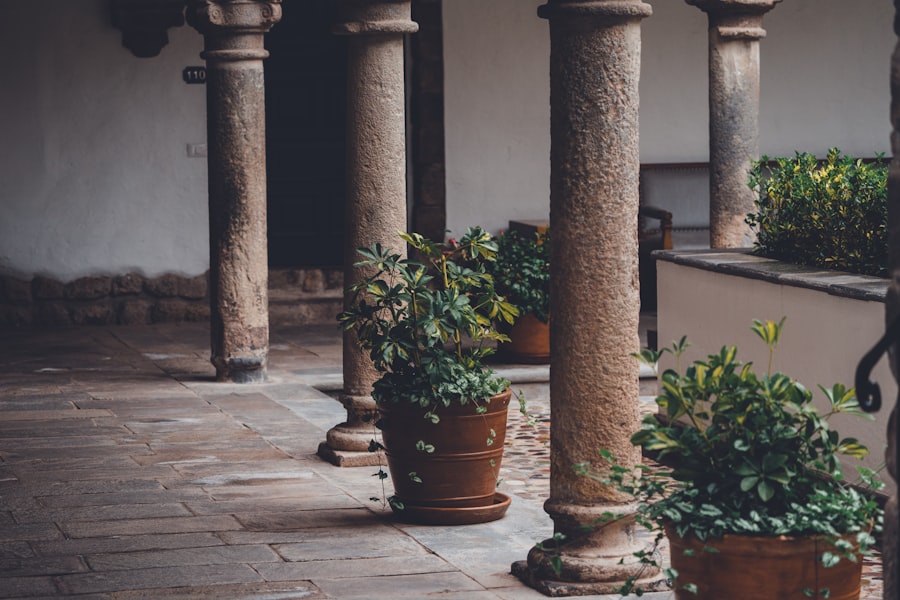
Monitoring and managing the health of your quail is an important aspect of caring for them on your patio. One of the first steps in monitoring their health is observing their behavior and appearance on a daily basis. Healthy quail should be active, alert, have bright eyes, clean feathers, and a good appetite. Any changes in behavior or appearance may indicate an underlying health issue that needs attention.
In addition to daily observations, it’s important to conduct regular health checks on your quail. This may involve handling them gently to check for any signs of injury or illness, such as wounds, swelling, or abnormal lumps. You should also monitor their droppings for any changes in color or consistency, which may indicate digestive issues or parasites.
Another important aspect of managing the health of your quail is providing them with regular preventative care. This may include vaccinations against common diseases such as Newcastle disease or fowl pox, as well as regular deworming treatments to prevent parasitic infestations.
It’s also important to have a plan in place for addressing any health issues that may arise. This may involve establishing a relationship with a veterinarian who has experience with poultry or having basic medical supplies on hand in case of emergencies.
In conclusion, monitoring and managing the health of your quail involves daily observations of their behavior and appearance, regular health checks, preventative care such as vaccinations and deworming treatments, and having a plan in place for addressing any health issues that may arise. By taking these steps, you can help ensure that your quail remain healthy and well-cared for on your patio.
Integrating Your Quail into Your Patio Lifestyle
Integrating your quail into your patio lifestyle involves finding ways to enjoy their company while also respecting their needs as birds. One way to integrate your quail into your lifestyle is by spending time observing them in their enclosure or interacting with them during feeding time. This can provide you with an opportunity to bond with your birds while also monitoring their behavior and health.
Another way to integrate your quail into your lifestyle is by involving them in activities such as gardening or outdoor dining. Quail can be beneficial for pest control in gardens by eating insects such as snails or slugs. You can also create a designated area on your patio where you can enjoy meals while watching your quail roam around their enclosure.
It’s also important to consider how your lifestyle may impact your quail’s well-being. For example, if you enjoy hosting gatherings or parties on your patio, it’s important to ensure that loud noises or excessive activity do not cause stress or anxiety for your birds. Similarly, if you have pets or young children, it’s important to supervise interactions between them and your quail to prevent any potential harm.
In conclusion, integrating your quail into your patio lifestyle involves finding ways to enjoy their company while also respecting their needs as birds. By spending time observing them, involving them in activities such as gardening or outdoor dining, and considering how your lifestyle may impact them, you can create a harmonious environment where both you and your quail can thrive together on your patio.
If you’re considering keeping quail on your patio, you might also be interested in learning about the process of hatching chicken eggs naturally. Understanding the timeline and requirements for hatching eggs can be crucial for successful breeding. Check out this informative article on how long it takes for chicken eggs to hatch naturally to gain valuable insights into this aspect of poultry care.
FAQs
What are the benefits of keeping quail on a patio?
Quail are small and easy to care for, making them a great option for those with limited space. They also provide fresh eggs and can help control pests in the area.
What do quail need to thrive on a patio?
Quail need a secure enclosure to protect them from predators, access to fresh water and a balanced diet, and a clean living environment.
Can quail be kept in a small space like a patio?
Yes, quail can thrive in a small space like a patio as long as their basic needs are met. It’s important to provide them with enough room to move around and access to fresh air and sunlight.
What should I consider before keeping quail on my patio?
Before keeping quail on your patio, consider local regulations and restrictions, the amount of noise they may produce, and the potential impact on your neighbors.
Are there any potential drawbacks to keeping quail on a patio?
Some potential drawbacks to keeping quail on a patio include noise, odor, and the need for regular maintenance to keep their living area clean. It’s important to consider these factors before deciding to keep quail on a patio.
Meet Walter, the feathered-friend fanatic of Florida! Nestled in the sunshine state, Walter struts through life with his feathered companions, clucking his way to happiness. With a coop that’s fancier than a five-star hotel, he’s the Don Juan of the chicken world. When he’s not teaching his hens to do the cha-cha, you’ll find him in a heated debate with his prized rooster, Sir Clucks-a-Lot. Walter’s poultry passion is no yolk; he’s the sunny-side-up guy you never knew you needed in your flock of friends!

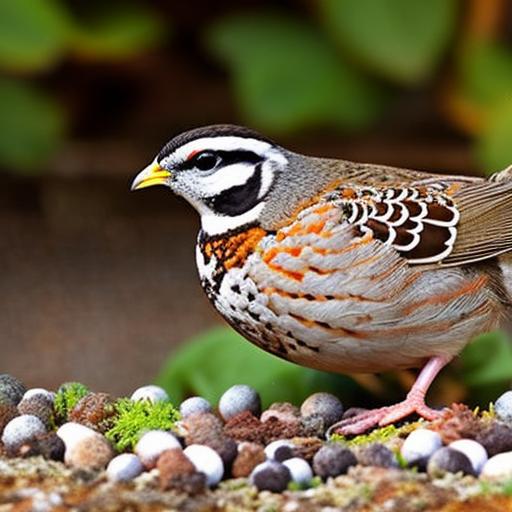
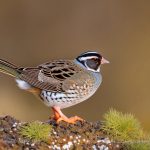
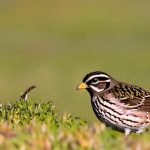

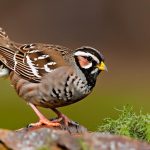


I live on the second floor of a condo building with a balcony patio. I have plants on the patio, and a Gambel’s quail has laid 7 eggs in one of the large pots. It is a desert grass, so she is well shaded and covered. She has been eating the food that I set out, and drinking fresh water daily, as well as the male. My question is: What will happen when the chicks hatch. I am on the second floor, and there are no steps. It is a balcony, and there is no way for them to “walk” to the ground. What do I do when they hatch? Should I move the pot to the ground? Or just let everything happen. She is sitting on them, so they are going to hatch VERY soon.
6/19/2025
How wonderful that you’ve become the host to a little quail family right on your balcony! Gambel’s quail chicks are precocial, which means they hatch ready to run, peep, and follow Mom almost immediately—not fluffy helpless hatchlings that need to be carried. When the eggs start to crack, the chicks will tumble out of the pot and instinctively stick close to their mother’s side. From there, Mom will lead them to safer ground—she may flutter down to a lower ledge or simply hop off the balcony, and the chicks are surprisingly agile for their size. It’s best not to move the pot once they’ve hatched, as shifting it could disorient or even injure the chicks and disturb Mom’s careful nesting spot.
Instead, you can continue offering food and water at balcony level and consider placing a gentle ramp—something as simple as a wooden plank with shallow ridges—so the chicks have an easy, non-slip pathway if they need a little help getting down. If you’d rather let nature take its course, trust that quail mothers are incredibly adept at guiding their brood. Keep an eye from a respectful distance, avoid sudden movements or loud noises, and you’ll soon have a front-row seat to some heartwarming “first steps” as those tiny quail explore the world just beyond their pot.
Hi Walter. I now have 2 week old popcorn running around my patio. My problem now is that there is no way for them to leave the patio. I have the scupper blocked, but my thought is to unblock it, put a box under it, and let them run in to the box. Then place them on the ground. I just hope that mom (and dad, who is there all the time, guarding them) will be OK with me putting them on the ground below. It is truly an amazing show. And it is like Cat TV for my Ragdoll Gabi. Thank you for the response.
Hi Mark,
That’s amazing to hear—two-week-old quail chicks running around your patio must be quite the sight! And I can only imagine how entertained Gabi must be with all the action.
Your plan sounds like a good one. Unblocking the scupper and placing a box underneath could work well, especially if it gives the chicks a safe way down. As long as you’re gentle and calm, Mom and Dad should be okay with it. They’re usually pretty focused on keeping the chicks together and safe, so they’ll likely regroup once everyone’s on the ground.
Just make sure the box isn’t too deep so the chicks can walk out easily. Early in the day or evening might be the best time—when it’s cooler and they’re less active.
Thanks for the update—it’s been great following this little adventure!
Walter,
The babies are very close to being able to fly. They can get about 3″ off of the ground. So, I got them to all run into a box. I set the box on the ground and waited for the parents to come back. Then, I released the babies, and the mother gathered them up, and they went into a very nice cover.
It was truly a great experience. It was amazing watching them grow. Fantastic learning experience. And I have a much greater appreciation for that part nature…
Thank you for your response!